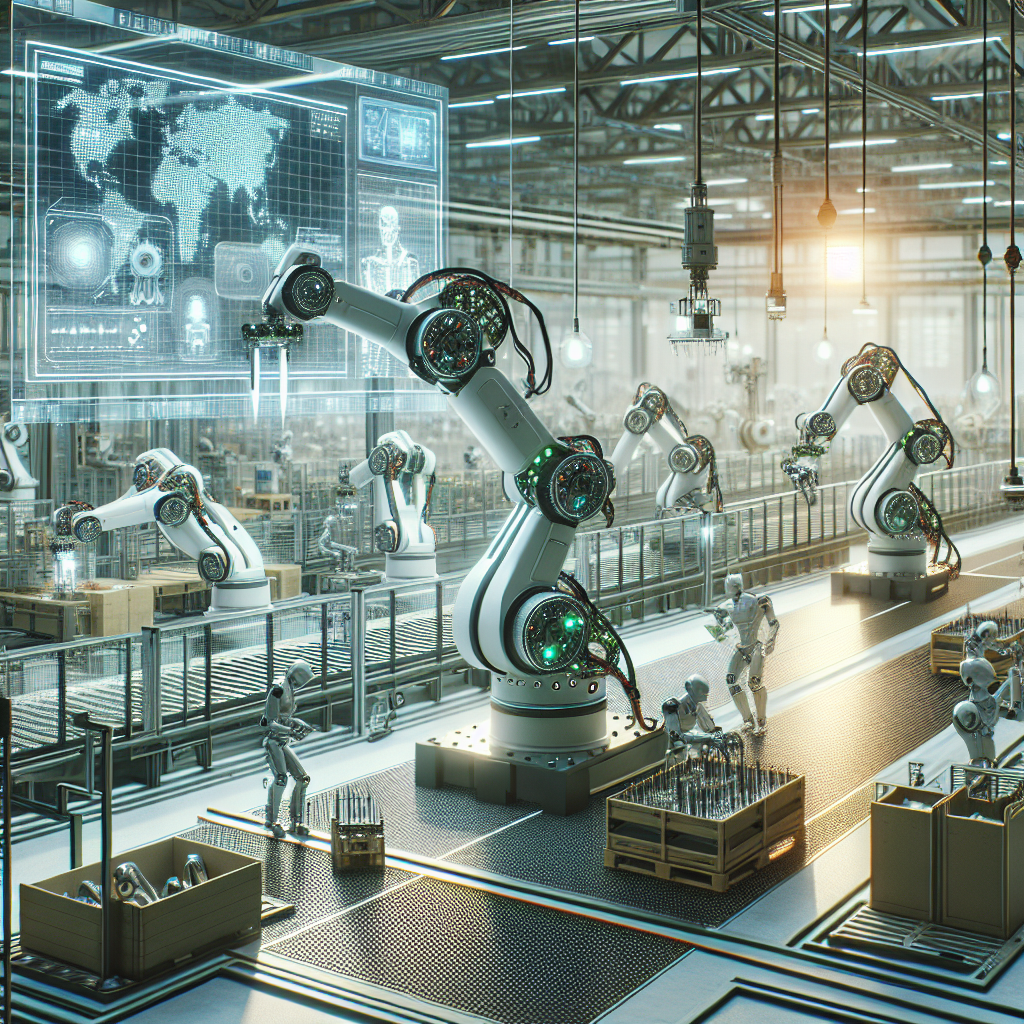AI and Robotics Process Automation in Manufacturing
Introduction
Artificial Intelligence (AI) and Robotics Process Automation (RPA) are revolutionizing the manufacturing industry by streamlining processes, increasing efficiency, and reducing costs. These technologies are enabling manufacturers to automate repetitive tasks, improve accuracy, and make data-driven decisions to optimize production.
AI and RPA are transforming the manufacturing landscape by offering innovative solutions to challenges faced by the industry. From predictive maintenance to quality control, these technologies are reshaping the way manufacturing companies operate. In this article, we will explore the impact of AI and RPA in manufacturing and how they are driving the industry forward.
The Role of AI in Manufacturing
AI is transforming the manufacturing industry by enabling machines to learn from data, identify patterns, and make decisions without human intervention. This technology is being used in various aspects of manufacturing, such as predictive maintenance, quality control, and supply chain optimization.
Predictive maintenance is one of the key areas where AI is making a significant impact in manufacturing. By analyzing data from sensors and other sources, AI can predict when a machine is likely to fail and schedule maintenance before a breakdown occurs. This proactive approach to maintenance helps manufacturers avoid costly downtime and improve overall equipment effectiveness.
AI is also being used to improve quality control in manufacturing. By analyzing images, videos, and other data, AI can identify defects in products with greater accuracy and speed than human inspectors. This technology helps manufacturers ensure that only high-quality products are shipped to customers, reducing the risk of recalls and rework.
Another area where AI is driving innovation in manufacturing is supply chain optimization. By analyzing data from suppliers, customers, and other sources, AI can help manufacturers optimize inventory levels, reduce lead times, and improve forecasting accuracy. This technology enables manufacturers to better respond to changes in demand and reduce costs throughout the supply chain.
The Role of RPA in Manufacturing
RPA is another technology that is transforming the manufacturing industry by automating repetitive tasks and improving efficiency. RPA software can be programmed to perform a wide range of tasks, such as data entry, order processing, and inventory management, without human intervention.
One of the key benefits of RPA in manufacturing is its ability to automate repetitive tasks that are time-consuming and error-prone. By automating these tasks, manufacturers can free up employees to focus on more strategic activities, such as process improvement and innovation.
RPA is also helping manufacturers improve accuracy and consistency in their operations. By eliminating manual data entry and other human errors, RPA can help manufacturers reduce defects, improve product quality, and enhance customer satisfaction.
Another advantage of RPA in manufacturing is its ability to increase efficiency and reduce costs. By automating repetitive tasks, RPA can help manufacturers streamline processes, reduce cycle times, and lower operational expenses. This technology enables manufacturers to achieve greater productivity and competitiveness in the global marketplace.
FAQs
Q: How is AI being used in predictive maintenance in manufacturing?
A: AI is being used in predictive maintenance by analyzing data from sensors, machines, and other sources to predict when a machine is likely to fail. By monitoring key performance indicators and identifying patterns in the data, AI can help manufacturers schedule maintenance before a breakdown occurs, reducing downtime and improving equipment reliability.
Q: What are the benefits of using AI for quality control in manufacturing?
A: The benefits of using AI for quality control in manufacturing include improved accuracy, speed, and consistency in identifying defects in products. By analyzing images, videos, and other data, AI can help manufacturers detect defects that may be missed by human inspectors, ensuring that only high-quality products are shipped to customers.
Q: How can RPA help manufacturers improve efficiency and reduce costs?
A: RPA can help manufacturers improve efficiency and reduce costs by automating repetitive tasks, such as data entry, order processing, and inventory management. By automating these tasks, RPA can help manufacturers streamline processes, reduce cycle times, and lower operational expenses, leading to greater productivity and competitiveness.
Q: What are some examples of tasks that can be automated using RPA in manufacturing?
A: Some examples of tasks that can be automated using RPA in manufacturing include data entry, order processing, inventory management, and report generation. RPA software can be programmed to perform these tasks without human intervention, freeing up employees to focus on more strategic activities and driving innovation in the industry.
Conclusion
AI and RPA are transforming the manufacturing industry by enabling companies to automate processes, improve efficiency, and reduce costs. These technologies are revolutionizing the way manufacturers operate by offering innovative solutions to challenges faced by the industry. From predictive maintenance to quality control, AI and RPA are driving innovation and reshaping the manufacturing landscape. As companies continue to adopt these technologies, we can expect to see even greater advancements in the industry and a more competitive marketplace.

